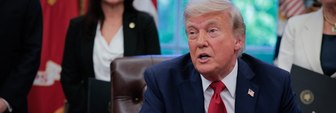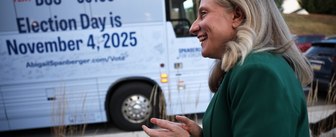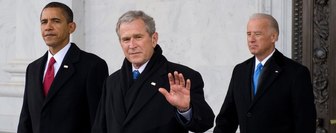More Americans are now “unsure” about the deal. Europeans remain overwhelmingly supportive.
President Obama is urging supporters to back the Iran nuclear deal and counter a well-funded lobbying effort already mobilized against it. On Thursday four Democrats announced their support for the agreement, but the administration so far lacks sufficient support to sustain a presidential veto if Congress votes to reject it.
A new YouGov poll on the Iran nuclear deal finds proponents of the deal may have reason to be concerned, as public support has softened significantly over the past ten days. Just 36% of the public say they back the deal in the latest poll, down from 51% in YouGov's previous survey. However, opposition has not increased so dramatically. 38% now oppose the deal, up from 33% in the previous poll. Meanwhile the number who are unsure how they feel about the deal has increased from 16% to 26%.
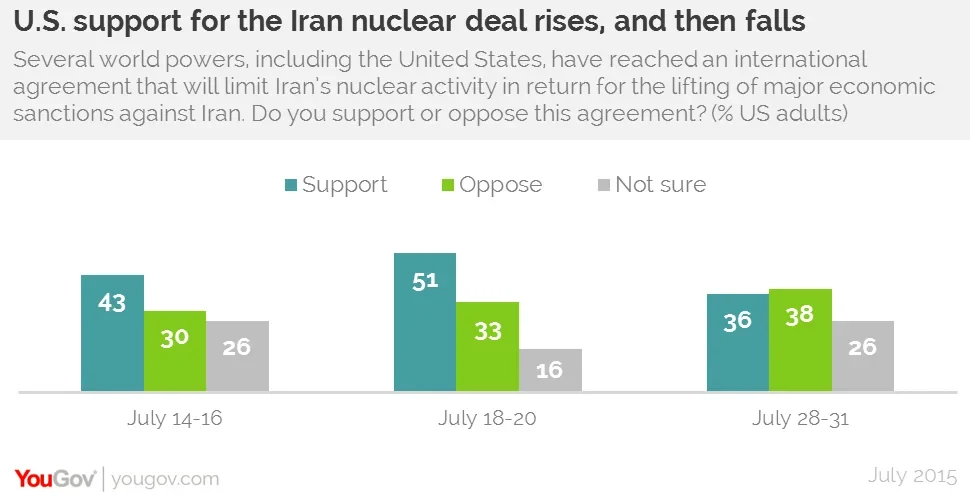
Much of the shift can be accounted for by a large drop in support among political independents, with whom support has fallen by 25%. As with the numbers for the general public, however, opposition to the deal has increased only slightly, from 33% to 37% while the ranks of those unsure how they feel has grown by 21 points.
But the president may be wise to caution that opponents of the potentially historic deal have been galvanized to a greater extent than those favorable to it. The number who “strongly” oppose the deal (24%) now more than double those who “strongly” support it (11%). This includes about half (48%) of self-identified Republicans who strongly oppose the agreement, which may be evidence that the escalating rhetoric and unified opposition of Republicans in Congress and the presidential nomination race may be having an effect.
Mike Huckabee
Indeed the poll found that nearly three-quarters (73%) of Republicans agree with the statement recently made by GOP presidential candidate Mike Huckabee that the Iran nuclear deal “is marching the Israelis to the door of the oven”, a reference to the Holocaust. A third of independents and 16% of Democrats also agree.
71% of Republicans say Huckabee should not apologize for his statement.
Also echoing the president’s concerns, the groups usually more sympathetic to the Obama administration (Democrats, young people, women and non-whites) are the least likely to say they are following news about the deal "closely", while those who tend to disapprove of the president are much more likely to be engaged – and to oppose the agreement.
Europe
One of President Obama’s arguments in favor of the deal has been that it is backed by the world community. A new survey of seven European nations, including three countries whose governments helped negotiate the deal itself (the United Kingdom, France and Germany) shows that Europeans do tend to be far more favorable to the deal than Americans.
Support for the Iran nuclear deal is highest in Germany, where 68% approve of it, but even where support is weakest (Finland and Sweden) nearly six in ten are behind it.
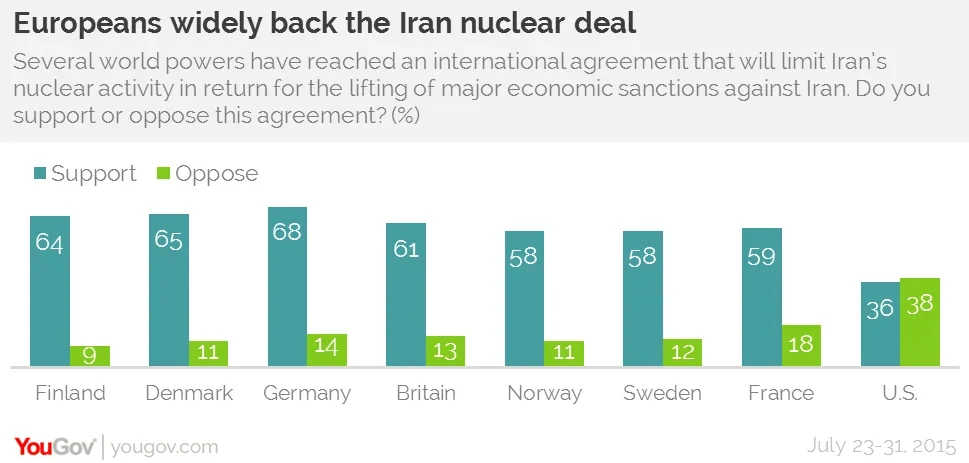
Europeans back the agreement despite doubts about its chances of success, also shared by many Americans. Between 50% and 63% in each European country lack confidence the deal will prevent Iran from developing a nuclear weapon.
Yet while 72% of Americans see Iran's nuclear program as a serious threat, the number of Europeans who feel threatened is much lower, from 53% in France to just 15% in Finland.
Full US poll results can be found here and topline results and margin of error here.
Full European results can be found here.





